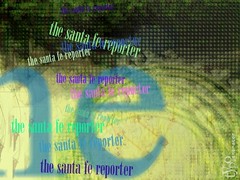this says it pretty well
WHY REPORTERS MUST BE ABLE TO KEEP CONFIDENTIAL SOURCES CONFIDENTIAL:
THE CASE FOR A FEDERAL SHIELD LAW NOW
By the California First Amendment Coalition
July 6, 2005
Across the land, freedom of the press--that is, the freedom of American citizens, through the press, to be kept informed about the affairs of government--is under assault. The threat comes not from the left or the right, from the Administration or Congress, but from federal judges, prosecutors and litigants who no longer feel constrained by law, ethics or policy from demanding that journalists disclose their confidential sources.
It is estimated that during the past year more than 70 journalists and news organizations have been involved in disputes with prosecutors and litigants in federal court over access to unpublished, confidential information. Dozens have received subpoenas demanding records or testimony; one journalist, Jim Taricani, a television reporter in Rhode Island, has already served a sentence for refusing to identify an anonymous source; and at least nine journalists have been held in contempt and currently face the threat of imminent incarceration or heavy fines (or both), including New York Times reporter Judith Miller, who was ordered jailed today. (Time magazine reporter Matthew Cooper, explaining that his source had expressly relieved him of his secrecy obligation, announced today that he would cooperate with the Special Counsel.)
The threat against the press is not new in American history. During British colonial rule, writer John Peter Zenger refused to reveal his sources while serving a sentence for "libeling" the governor of New York, and Benjamin Franklin declined to name the confidential sources for stories appearing in his brother's newspaper in Philadelphia. What is new is the pervasiveness and intensity of the threat. We have moved from a climate in which federal courts were, under a variety of legal theories, protective of reporters' confidential sources, to a climate in which a wave of federal court subpoenas now places the independence of the press in jeopardy.
At stake is the American people's right to know about the uses and misuses of power in high places. If journalists cannot promise confidentiality to a source--and have that source believe that his/her identity will never be revealed--the public will lose news reports of the greatest importance and consequence for public policy. These include reporting on corporate malfeasance, national security, and government corruption--all subjects for which confidential sources are not merely desirable, but indispensable. The best example in contemporary history is the reporting by Washington Post reporters Bob Woodward and Carl Bernstein that uncovered the Watergate scandals. The secrecy surrounding their most valuable confidential source, FBI official Mark Felt (aka "Deep Throat"), lasted more than 30 years and was lifted only recently by Felt himself.
The judicial threat is almost uniquely federal. Forty-nine states and the District of Columbia, through legislation or court decision, have adopted "shield laws" providing an evidentiary privilege for reporters--much like the privileges enjoyed by clergy, lawyers and psychotherapists-- to keep secret information given them in confidence. Although some federal judicial circuits also recognize such a privilege, most do not, and the Supreme Court's recent decision not to review a crucial contempt ruling against reporters Miller and Cooper leaves no room for hope that the federal courts will, on their own, end the assault on press freedom.
Accordingly, we look to Congress for action on this urgent matter. Congress now has before it several bills to establish a reporter's evidentiary privilege in federal proceedings. We urge members of California's Congressional delegation, Democrats and Republicans alike, to come together and support the most promising of these bills. The issue is no longer whether a federal "shield law" is needed; the issue, rather, is how soon it can be enacted. Freedom of speech, upon which all our freedoms depend, hangs in the balance.
THE CASE FOR A FEDERAL SHIELD LAW NOW
By the California First Amendment Coalition
July 6, 2005
Across the land, freedom of the press--that is, the freedom of American citizens, through the press, to be kept informed about the affairs of government--is under assault. The threat comes not from the left or the right, from the Administration or Congress, but from federal judges, prosecutors and litigants who no longer feel constrained by law, ethics or policy from demanding that journalists disclose their confidential sources.
It is estimated that during the past year more than 70 journalists and news organizations have been involved in disputes with prosecutors and litigants in federal court over access to unpublished, confidential information. Dozens have received subpoenas demanding records or testimony; one journalist, Jim Taricani, a television reporter in Rhode Island, has already served a sentence for refusing to identify an anonymous source; and at least nine journalists have been held in contempt and currently face the threat of imminent incarceration or heavy fines (or both), including New York Times reporter Judith Miller, who was ordered jailed today. (Time magazine reporter Matthew Cooper, explaining that his source had expressly relieved him of his secrecy obligation, announced today that he would cooperate with the Special Counsel.)
The threat against the press is not new in American history. During British colonial rule, writer John Peter Zenger refused to reveal his sources while serving a sentence for "libeling" the governor of New York, and Benjamin Franklin declined to name the confidential sources for stories appearing in his brother's newspaper in Philadelphia. What is new is the pervasiveness and intensity of the threat. We have moved from a climate in which federal courts were, under a variety of legal theories, protective of reporters' confidential sources, to a climate in which a wave of federal court subpoenas now places the independence of the press in jeopardy.
At stake is the American people's right to know about the uses and misuses of power in high places. If journalists cannot promise confidentiality to a source--and have that source believe that his/her identity will never be revealed--the public will lose news reports of the greatest importance and consequence for public policy. These include reporting on corporate malfeasance, national security, and government corruption--all subjects for which confidential sources are not merely desirable, but indispensable. The best example in contemporary history is the reporting by Washington Post reporters Bob Woodward and Carl Bernstein that uncovered the Watergate scandals. The secrecy surrounding their most valuable confidential source, FBI official Mark Felt (aka "Deep Throat"), lasted more than 30 years and was lifted only recently by Felt himself.
The judicial threat is almost uniquely federal. Forty-nine states and the District of Columbia, through legislation or court decision, have adopted "shield laws" providing an evidentiary privilege for reporters--much like the privileges enjoyed by clergy, lawyers and psychotherapists-- to keep secret information given them in confidence. Although some federal judicial circuits also recognize such a privilege, most do not, and the Supreme Court's recent decision not to review a crucial contempt ruling against reporters Miller and Cooper leaves no room for hope that the federal courts will, on their own, end the assault on press freedom.
Accordingly, we look to Congress for action on this urgent matter. Congress now has before it several bills to establish a reporter's evidentiary privilege in federal proceedings. We urge members of California's Congressional delegation, Democrats and Republicans alike, to come together and support the most promising of these bills. The issue is no longer whether a federal "shield law" is needed; the issue, rather, is how soon it can be enacted. Freedom of speech, upon which all our freedoms depend, hangs in the balance.












<< Home